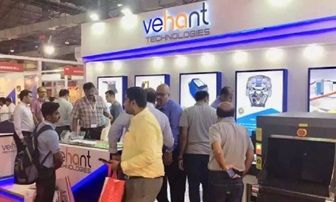Noida-based security and surveillance solutions provider Vehant Technologies said it has received fresh orders worth Rs 37 crore from Mumbai Airport and Airports Authority of India (AAI) for the supply of dual-view X-ray machines.
The order includes the supply and installation of 83 units of machines tailored to various sizes. Mumbai Airport will receive 44 machines, while AAI is set to receive 39 units, part of which is a recurring order for baggage scanners, said the company.
The order includes various models such as the 6040 Dual View X-Ray baggage scanners, and the KritiScan 100100 and 150180 Dual View X-Ray Cargo scanners. Vehant said that all these baggage scanning machines will be designed and manufactured in India.
The current order from the Airport Authority of India is a repeat order of the Rs 90 crore order Vehant received in January 2023, which the company successfully supplied across 70 airports in cities including Chennai, Kolkata, Trichy, Pune, Udaipur, Varanasi, Jodhpur, Prayagraj, and more.
The company said it also supplied 20 numbers of NanoSniffer: Explosive Trace Detector, under a trial order from AAI under the Make in India Initiative, which are supplied and installed at 6 Airports in India.
“We are committed to passenger safety at airports through our advanced X-Ray screening and detection systems. These machines ensure rigorous and quick security checks, providing a sense of peaceful travel to the passengers. As we invest in cutting-edge technology, we contribute to ensuring the safety and protection of passengers, staff, and the airport premises,” said Kapil Bardeja, Co-founder and CEO, Vehant Technologies.
Vehant said that these X-ray machines are powered by cutting-edge Artificial Intelligence (AI) and Machine Learning (ML) capabilities that automatically detect dangerous items and anomalies in real time, thereby significantly enhancing safety and swiftly identifying potential threats.
“These systems are not only safety-oriented but also remarkably cost-efficient, optimising resource allocation and reducing the need for manual intervention, resulting in substantial cost savings and an overall more efficient approach to airport security operations.” said the company.








